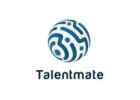Choose "Make this ad premium" at checkout.
Check with seller How to file a self assessment tax return? London
- Location: London, London, United Kingdom
Self-assessment tax returns may seem daunting, but they are crucial for freelancers, sole traders, and anyone earning income outside traditional employment. If you're self-employed, a freelancer, or generate income from investments or rental properties, reporting your earnings to HM Revenue and Customs (HMRC) is essential. This process ensures you pay the correct tax amount and comply with UK tax laws.
A self-assessment tax return is a form that enables you to declare your earnings and expenses for the tax year. Filing it correctly ensures compliance and allows you to claim deductions you’re entitled to, helping you manage your finances effectively.
In this blog, we simplify the self-assessment process, explaining the key steps to make filing your tax return straightforward and manageable.
What Are Self-Assessment Tax Returns?
A self-assessment tax return is a system used by HMRC to collect income tax from individuals who earn money outside regular employment. If you’re self-employed, a freelancer, or earn from rental properties or investments, filing a self-assessment return annually is mandatory. This process helps ensure you report your income and expenses accurately, determining whether you owe tax or qualify for a refund.
The primary form, SA100, requires detailed information about your income, expenses, and other financial data for the tax year. Accurately completing this form is essential to calculate your tax liability correctly.
Filing your self-assessment is not just a legal requirement—it’s also an opportunity to claim allowable deductions, reducing your overall tax bill.
Who Needs to File a Self-Assessment Tax Return?
You are required to file a self-assessment tax return if you fall under the following categories:
Criteria for Mandatory Filing
Self-Employment: Earned over £1,000 in a tax year.
Partnerships: Business partners must submit self-assessments.
High Income: Taxable income exceeds £150,000.
Capital Gains Tax: Owe tax on asset sales.
High Income Child Benefit Charge: Earn over £50,000 and receive child benefits.
Additional Scenarios
Property Income: Rental income exceeds £2,500.
Untaxed Income: Tips or commissions over £2,500.
Foreign Income: Subject to UK tax.
Investment Income: £10,000 or more before tax.
Trusts and Estates: Income from trusts or estates.
How to Register for Self-Assessment
Registering with HMRC is the first step for self-assessment. If you’re self-employed or earn untaxed income, you must register online by 5 October following the tax year you need to file for.
Steps to Register
Create a Government Gateway ID: This account lets you access HMRC services, including self-assessment.
Complete the Registration Form: Provide your name, National Insurance number, date of birth, address, and business details.
Receive Your UTR: HMRC will issue a Unique Taxpayer Reference (UTR), a 10-digit code used for tax purposes.
Filing Your Tax Return: What You Need
To ensure accurate filing, gather the following documents:
Essential Documents
National Insurance Number
Income Statements: Employment, rental, and investment income.
Business Records: Detailed records of expenses and earnings if self-employed.
Understanding Income Sources
Self-Employment: Business profits.
Rental Income: Earnings from rented properties.
Investment Income: Dividends and interest.
Other Sources: Freelance or additional income.
Key Deadlines for Self-Assessment
Tax Year Period: 6 April 2023 to 5 April 2024.
Registration Deadline: 5 October 2024.
Paper Return Submission Deadline: 31 October 2024.
Online Return Submission Deadline: 31 January 2025.
Payment Deadline: 31 January 2025.
Second Payment Deadline (if applicable): 31 July 2025.
Deductions and Allowable Expenses
Reduce your taxable income by claiming deductions and allowable expenses.
For Self-Employed Individuals
Business Expenses: Office supplies, equipment, and utilities.
Travel Expenses: Business travel costs, including transport and accommodation.
Home Office Costs: A portion of household bills if working from home.
Professional Fees: Memberships or subscriptions.
Training Costs: Courses to improve business skills.
For Property Income
Repairs and Maintenance: Essential repairs (not value-adding improvements).
Mortgage Interest: Interest on rental property loans.
Letting Agent Fees: Deduct agent charges.






Useful information
- Avoid scams by acting locally or paying with PayPal
- Never pay with Western Union, Moneygram or other anonymous payment services
- Don't buy or sell outside of your country. Don't accept cashier cheques from outside your country
- This site is never involved in any transaction, and does not handle payments, shipping, guarantee transactions, provide escrow services, or offer "buyer protection" or "seller certification"
Related listings
-
 Experience the Importance of Nonprofit Bookkeeping for Sustainability by MSTAccounting - Finance - Atlanta (Georgia) - December 27, 2024 Check with seller
Experience the Importance of Nonprofit Bookkeeping for Sustainability by MSTAccounting - Finance - Atlanta (Georgia) - December 27, 2024 Check with sellerMST provides specialist nonprofit bookkeeping services to help organizations manage their finances with precision and transparency. Utilize their renowned experience to streamline your accounting operations. To know more visit: https://...
-
 Find Jobs in SharjahAccounting - Finance - (Sharjah) - December 7, 2024 Free
Find Jobs in SharjahAccounting - Finance - (Sharjah) - December 7, 2024 FreeTo find Jobs in Sharjah is easier with portals offering a variety of opportunities. Talentmate helps job seekers connect with roles in different fields, making it simple to land the right job. If you are an experienced worker or an inexperienced one,...
-
 Revolutionize Your Business with an E Invoice Accounting System: Simplify Billing TodayAccounting - Finance - District 10 (Central) - December 2, 2024 Check with seller
Revolutionize Your Business with an E Invoice Accounting System: Simplify Billing TodayAccounting - Finance - District 10 (Central) - December 2, 2024 Check with sellerDiscover the benefits of an e invoice accounting system for your business. Streamline invoicing, enhance efficiency, and stay compliant with advanced digital solutions.
